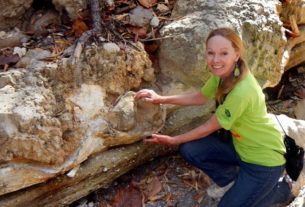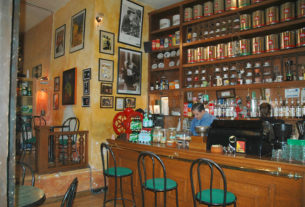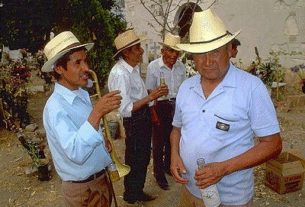Roosters crowing, church bells clanging, dogs barking, street vendors broadcasting their products, brass bands serenading wedding parties in the streets… the soundtrack to life in Mexico is not the reality for every Mexican. In Mexico the most prevalent disability is deafness. Three out of every 1000 babies are born with some degree of hearing loss. These numbers increase to six in 1000 because people acquire it after birth, owing to diverse causes such as heredity, illness, accidents, and certain medicines. The families of many deaf and hard-of-hearing children cannot afford even the most modest treatment/rehabilitation interventions. Deafness poses significant challenges.
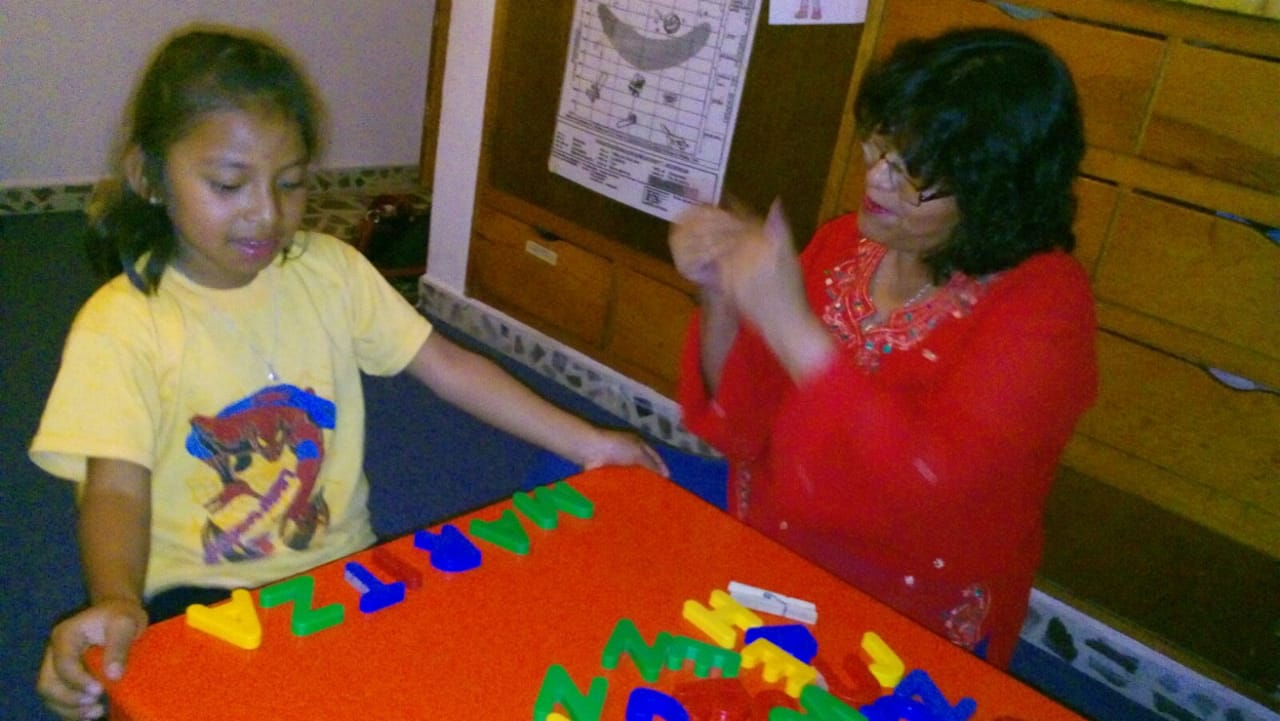
Fortunately for families facing these challenges in Oaxaca, there is a place to turn. The Centro Oaxaqueño de Rehabilitación de Audición y Lenguaje (the Oaxacan Centre for the Rehabilitation of Hearing and Speech), or CORAL, has been around for more than thirty years. It’s a full-service hearing clinic and education center, providing testing, therapy, clinical services, advocacy, family support, education and hearing aids to some of the poorest families in the state of Oaxaca. It is the only resource of its kind in all of southern Mexico.CORAL currently serves more than 3000 people with hearing loss and their families annually.
At CORAL, hearing and language therapy programs are offered for children up to 12 years of age. All therapy sessions are held in the company of the child’s mom or dad, so that parents can learn communication tools with their child. The Total Communication Method includes LSM (Mexican Sign Language) classes, each lasting 45 minutes. Children aged 3-5 attend CORAL’s preschool program (3 hours a day, 5 days a week), in which therapists help the children develop language, cognition and motor skills.
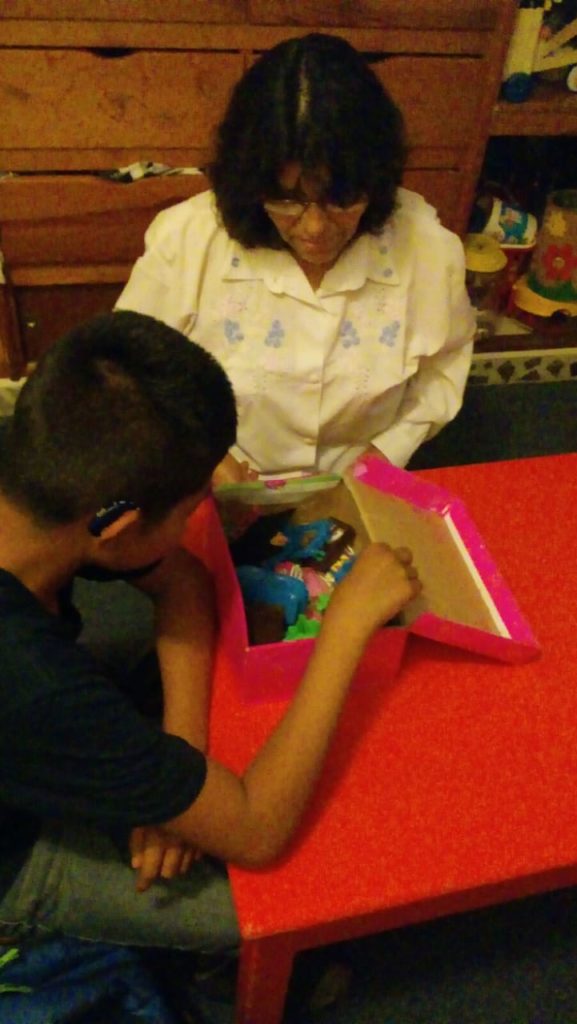
The story of CORAL goes back to 1987, when an Oregon couple, Drs. Richard Carroll and Nancy Press, began to spend months at a time away from their medical practice in the US, visiting indigenous and mestizo communities with the social worker, Silvia Torres Zurita. In their travels they witnessed the shortage of services for children with hearing loss in Oaxaca. They began sending hearing aids to the newly created team of Silvia Torres and an audiologist, which later became a full-service audiological health care program. While there was perhaps only one audiologist in the entire State of Oaxaca when the doctors began, there is now a team of professionals to identify the hearing impaired, and provide aid.
As with so many organizations, CORAL has seen the impact of the global pandemic. In March, CORAL was forced to close its facility. They adapted quickly to providing services online by Facebook, email, telephone or WhatsApp.
This important work is funded through a variety of sources. Some Canadians donate to the Speech and Signing Therapy Project of CANFRO, Canadian Friends of Oaxaca. CANFRO engages the services of trained speech and sign language therapists to offer programs for hearing-impaired children and their parents at CORAL. In addition to treatment for the children, CANFRO hopes to be able to employ the part-time services of a psychologist-counselor who can help the parents understand and support the emotional needs of their deaf-hard of hearing children. Donations made by Canadians through CANFRO receive a Canadian income tax receipt, meaning their generosity can go even further thanks to the tax savings.
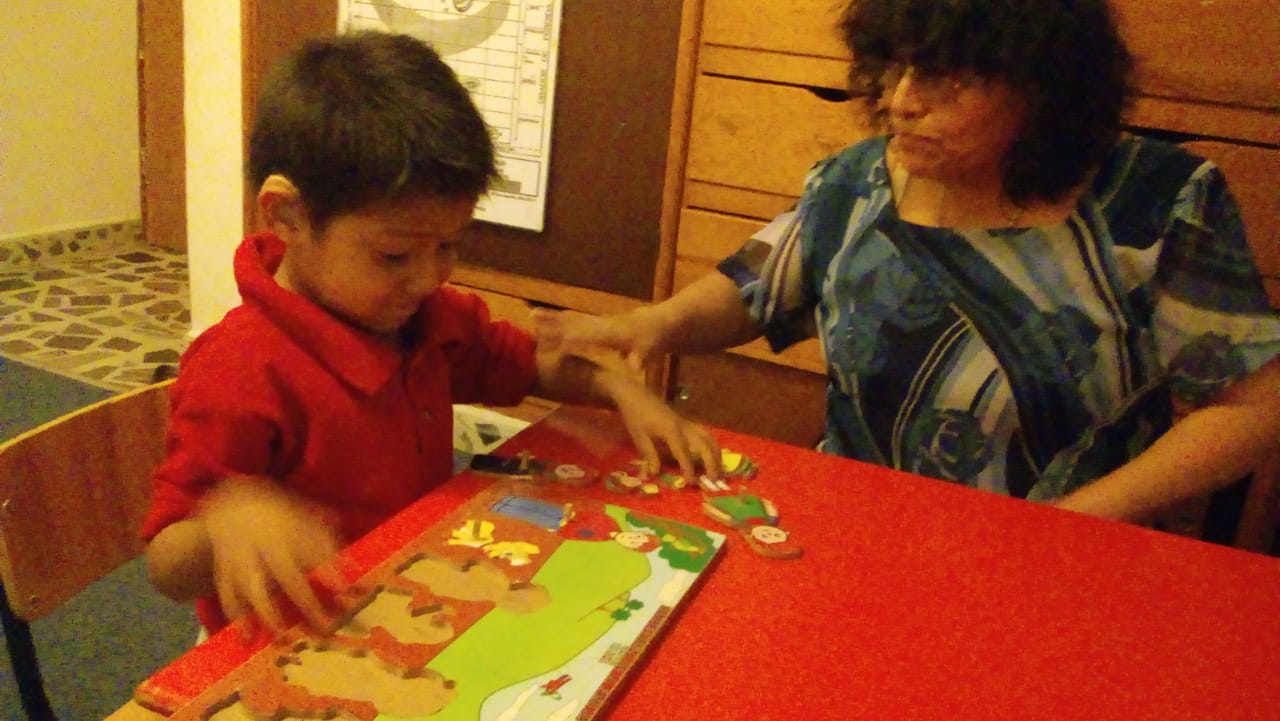
Additionally, donations directly to CORAL though its website help support screening tests, language therapy, and hearing aids. Other partners and sponsors include foundations in Europe, the US, and Mexico. Thanks to contributions from individuals and foundations, CORAL can focus on its mission to “seek a world without barriers, a place where hearing loss is not an impediment for people to develop their full potential and to incorporate into the social, educational and emotional life to which all human beings are entitled.”
Want to help?
Author Wendy Robbins is a former radio producer whose retirement has been enlivened by visits to Mexico and volunteer work with CANFRO.
[Editor’s note: A heartwarming book published in 2020 by Gwen Burton — New Worlds for the Deaf: the story of the pioneering Lakeside School for the Deaf in rural Mexico — tells the story of a similar project to help deaf children in western Mexico.]

